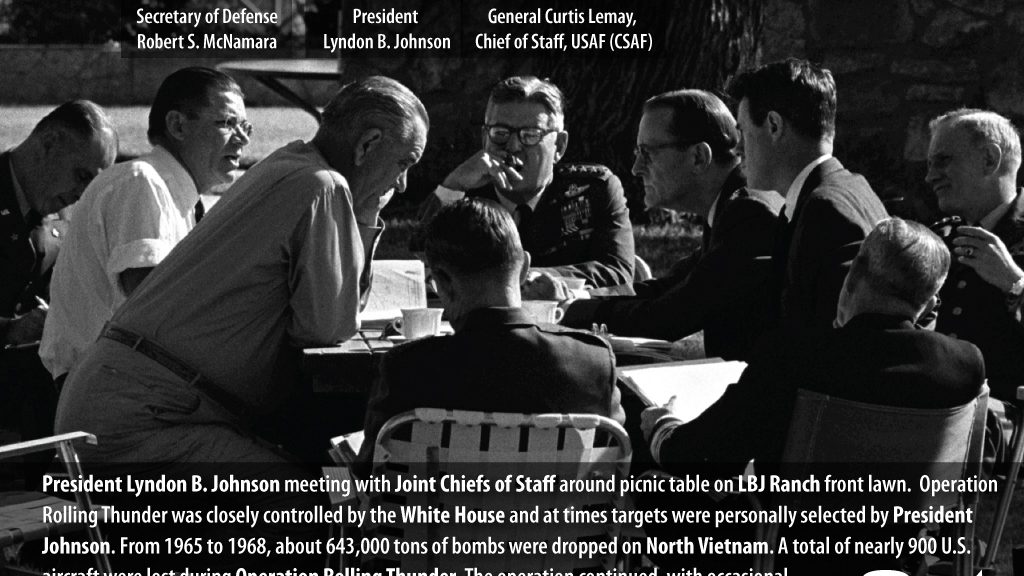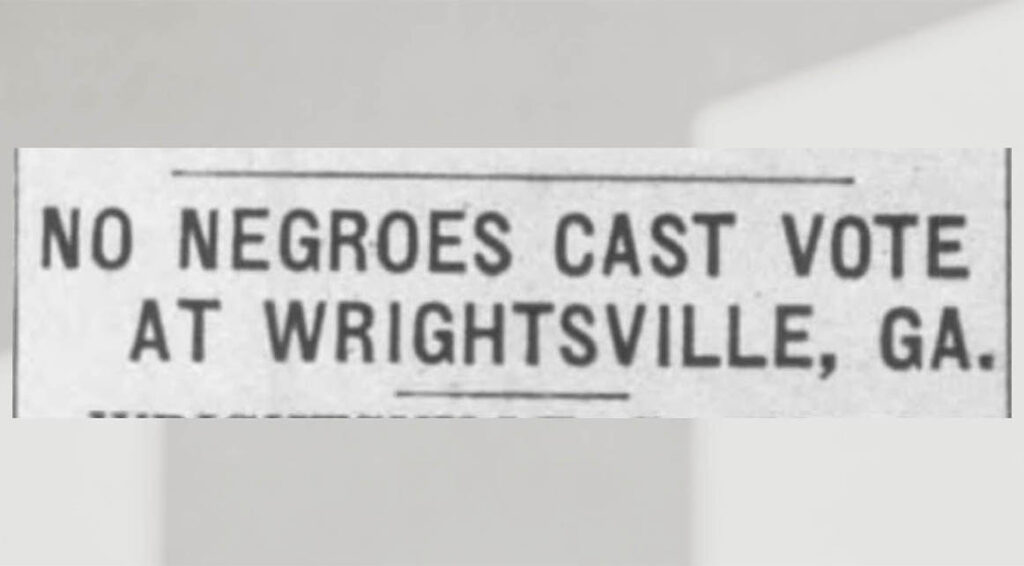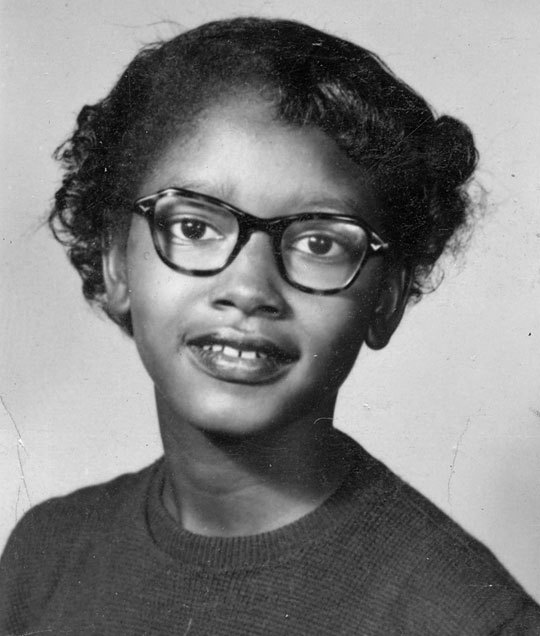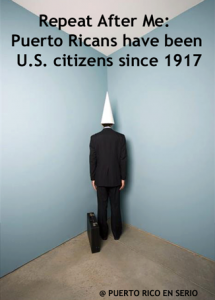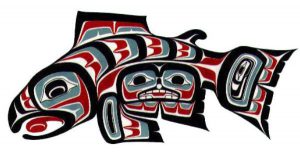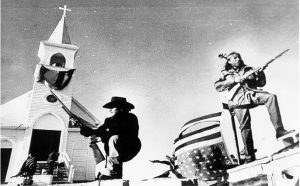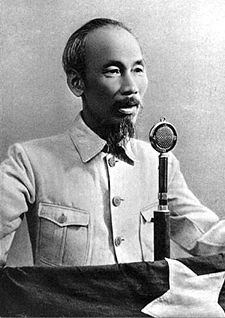March 2 Peace Love Art Activism
BLACK HISTORY
Importation of slaves banned
March 2, 1807: Congress approved a bill to ban the importation of slaves into the United States. President Jefferson signed the bill into law on March 3.
The act took effect on January 1, 1808, and provided that violators were to be fined up to $2000 or imprisoned. The act was poorly enforced; the government often refused to allow the British Royal Navy to search and seize American slave ships and rarely imposed serious punishments against captains, officers, and owners of slave ships participating in illegal slave trading. Consequently, Africans continued to be smuggled into the country, but in smaller numbers. In the two decades following the ban, approximately 10,000 enslaved Africans were brought to the Gulf region, compared to the 73,000 enslaved Africans who arrived in the United States between 1801 and 1808. Mobile, Alabama, holds the distinction of being the port of entry for the last cargo of African slaves kidnapped and brought into the United States in 1859.
The act did not hinder the domestic sale of slaves within the United States and it failed to provide a remedy for illegally trafficked Africans. It freed them from the control of the smuggler but left their fates to the mercy of the state where the ship docked which, in most cases, condemned them to slavery. Slavery would not be legally abolished until the ratification of the Thirteenth Amendment to the Constitution on December 6, 1865. (see April 1, 1808)
Voter Suppression
March 2, 1948: on the eve of a primary election in Wrightsville, Johnson County, Georgia, at least 300 white men and women belonging to the Ku Klux Klan held a parade in the town’s center. The gathering featured speeches inciting racial hatred and violence, and participants burned crosses on the lawn of the county courthouse. The event was organized to threaten and intimidate the county’s 400 registered Black voters into not voting in the next day’s primary, and the terror tactics worked: fearing for their safety and knowing they had no expectation of protection from law enforcement, not a single Black citizen of Wrightsville cast a vote in the primary. [EJI article] (next BH, see July 14)
Claudette Colvin
March 2, 1955: nine months before the Rosa Parks arrest, 15-year-old Claudette Colvin boarded a city bus after school to head home. As it filled up, a white woman was left standing, and the bus driver ordered the 15-year-old Colvin to get up and move to the back. She refused, police were called. They dragged Colvin off the bus in handcuffs.
In a 2013 interview, Colvin stated, “I tell—one of the questions asks, “Why didn’t you get up when the bus driver asked you, and the policemen?” I say, “I could not move, because history had me glued to the seat.” And they say, “How is that?” I say, “Because it felt like Sojourner Truth’s hands were pushing me down on one shoulder and Harriet Tubman’s hands were pushing me down on another shoulder, and I could not move. And I yelled out, ’It’s my constitutional rights,’” because I wasn’t breaking a law under the state’s law, separate but equal; I was sitting in the area that was reserved for black passengers. At that time, we didn’t even want to be called “black,” because black had a negative connotation. We were called “coloreds.” So I was sitting in the coloreds’ section. But because of Jim Crow law, the bus driver had police force, he could ask you to get up. And the problem was that the white woman that was standing near me, she wasn’t an elderly white woman. She was a young white woman. She had a whole seat to sit down by—opposite me, in the opposite row, but she refused to sit down; because of Jim Crow laws, a white person couldn’t sit opposite a colored person. And a white person had to sit in front of you. The purpose was to make white people feel superior and colored people feel inferior”. (see Claudette Colvin for more) (see In April 1955)
Alabama State College
March 2, 1960: Alabama State College expelled the nine student leaders of the March 1 courthouse sit-in.
More than 1000 students immediately pledged a mass strike, threatened to withdraw from the school, and staged days of demonstrations; 37 students were arrested. Montgomery Police Commissioner L.B. Sullivan recommended closing the college, which he claimed produced only “graduates of hate and racial bitterness.” Meanwhile, six of the nine expelled students sought reinstatement through a federal lawsuit.(next BH, see Mar 29; see G4 for expanded chronology)
Segregated bus seating
March 2, 1962: U.S. District Court Judge William Bootle ruled that the segregated bus seating laws were unconstitutional, and ordered the Bibb Transit Company to comply with his judgment. Two days later the Macon bus boycott ended. (see Mar 27)
George Whitmore, Jr.
March 2, 1965: District Attorney Aaron Koota conceded that George Whitmore, Jr. deserved a new trial in the Borrero case, but Justice Malbin reserved ruling. (see Whitmore for expanded story)
Stephon Clark
March 2, 2019: the Sacramento County District Attorney Anne Marie Schubert announced that officers Terrence Mercadal and Jared Robinet, who shot and killed Stephon Clark in his grandmother’s backyard would not face criminal prosecution.
“Was a crime committed? There’s no question that a human being died,” Schubert said. “But when we look at the facts and the law, and we follow our ethical responsibilities, the answer to that question is no. And as a result, we will not charge these officers.” (see Mar 5)
March 2 Peace Love Art Activism
Immigration History
Sea transportation for migrants
March 2, 1819: the US government passed the first legislation regulating the conditions of sea transportation for migrants. The legislation was known as the Steerage Act of 1819 and also as the Manifest of Immigrants Act, the latter name because one of its provisions was a requirement for passenger ships to submit a manifest of immigrants on board. Other regulations of the Act had to do with…
- Limiting the number of passengers
- Penalties for exceeding that maximum number
- Amount of provisions for each passenger (next IH, see February 22, 1847)
Feminism
March 2, 1907: The Expatriation Act, which became law on this day, contained a provision that stripped the citizenship from U.S. women who married foreign nationals. This provision was repealed by the Cable Act on September 22, 1922.
During the Cold War, in the case of Trop v. Dulles (March 3, 1958), the Supreme Court ruled that it was unconstitutional for the government to revoke the citizenship of a U.S. citizen as a form of punishment. (next IH, see March 26, 1910; Act, see December 6, 1915)
Feminism & Voting Rights
In 1908: while studying in England, American Alice Paul meets Emmeline and Christabel Pankhurst, leaders of the Women’s Social and Political Union. Paul will bring their more militant tactics in pursuit of women’s suffrage back to America in 1910. (Feminism, see February 24, 1908; Voting Rights, see July 21, 1908)
Jones-Shafroth Act
March 2, 1917: just before the US entry into World War I, President Wilson signed the Jones-Shafroth Act, under which Puerto Rico became a U.S. territory and Puerto Ricans were granted statutory citizenship, meaning that citizenship was granted by an act of Congress and not by the Constitution (thus it was not guaranteed by the Constitution). (see May 19, 1921)
The act also created a bill of rights for the territory, separated its government into executive, legislative and judicial branches, and declared Puerto Rico’s official language to be English. The Bill furthermore constructed a government and bill of rights for the island and allowed its residents to serve in the U.S. military. (next IH, see October 16, 1918; IH reform, see October 3, 1965
Japanese Internment Camps
March 2, 1942: General John L. DeWitt ordered evacuation from most of California, western Oregon and Washington, and southern Arizona. A few Germans, Italians, and other Caucasians were evacuated, but only the people of Japanese ancestry were moved en masse. (see Camps for expanded story)
March 2 Peace Love Art Activism
Native Americans
Indian Appropriations Bill
March 2, 1889: Congress passed the Indian Appropriations Bill, proclaiming unassigned lands in the public domain. An amendment by Illinois Representative William McKendree Springer authorized President Benjamin Harrison to open two million acres in the Oklahoma Territory for settlement. (see Apr 22).
Fishing rights
March 2, 1964: The Puyallup Tribe and the National Indian Youth Council challenged limitations on Native-American fishing rights in the state of Washington by engaging in what was called a “fish-in.”
Marlon Brando was arrested during the protest. Brando later refused to accept his Academy Award for his performance in The Godfather on March 27, 1973, in protest of the treatment of Native-Americans, both in society at large and in Hollywood movies. (see Mar 8)
Wounded Knee II
March 2, 1973: federal forces surround Wounded Knee, South Dakota, which the American Indian Movement were holding hostages. (see Mar 7)
March 2 Peace Love Art Activism
US Labor History
Postal workers
March 2, 1913: postal workers granted 8-hour day. (see Mar 4)
WV Teachers
March 2, 2018: the statewide teacher strike in West Virginia entered its seventh day with teachers defying efforts by the state’s governor and union leaders to end the walkout with a deal to raise pay. (see Mar 3)
March 2 Peace Love Art Activism
Fourth Amendment
March 2, 1925: Carroll v. United States. The US Supreme Court upheld that the warrantless search of an automobile. It is known as the automobile exception.
George Carroll and John Kiro were arrested for the transportation of alcohol in violation of the Volstead Act and subsequently convicted. In a 6-2 decision, Chief Justice William H. Taft rejected the argument that there was no basis to search their car and that the resulting evidence should have been excluded from trial. This case made a distinction between a person’s dwelling and a moving vehicle, holding that such a distinction was consistent with Fourth Amendment guarantees. (see June 27, 1949)
March 2 Peace Love Art Activism
Vietnam
Ho Chi Minh
March 2, 1946: Ho Chi Minh elected President of Vietnam. (see Mar 6)
Operation Rolling Thunder
March 2, 1965: Operation Rolling Thunder began as over 100 American fighter-bombers attacked targets in North Vietnam. Scheduled to last eight weeks, Rolling Thunder will instead go on for three years. (Vietnam, see Mar 8; Rolling Thunder, see November 1, 1968)
RFK’s three-point plan
March 2, 1967: Senator Robert Kennedy (D-New York) proposed a three-point plan to help end the war. The plan included suspension of the U.S. bombing of North Vietnam and the gradual withdrawal of U.S. and North Vietnamese troops from South Vietnam with replacement by an international force. Secretary of State Dean Rusk rejected Kennedy’s proposal because he believed that the North Vietnamese would never agree to withdraw their troops. (see Mar 20)
Sons and Daughters In Touch
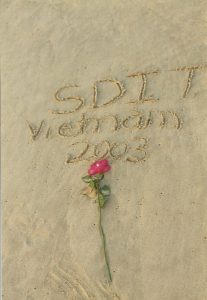 March 2, 2003: Sons and Daughters In Touch led an historic two week journey to Vietnam. Guided by Vietnam combat veterans and nurses who served in the war, more than 50 Gold Star ‘sons and daughters’ were able to stand in the precise location where their fathers were lost. While in Vietnam, the SDIT delegation also visited Ho Chi Minh City, the Mekong Delta, Cu Chi, Da Nang, Quang Tri, Khe San, China Beach, Hue City and Hanoi. (see August 20, 2009)
March 2, 2003: Sons and Daughters In Touch led an historic two week journey to Vietnam. Guided by Vietnam combat veterans and nurses who served in the war, more than 50 Gold Star ‘sons and daughters’ were able to stand in the precise location where their fathers were lost. While in Vietnam, the SDIT delegation also visited Ho Chi Minh City, the Mekong Delta, Cu Chi, Da Nang, Quang Tri, Khe San, China Beach, Hue City and Hanoi. (see August 20, 2009)
March 2 Peace Love Art Activism
March 2 Music et al
Walk Like a Man
March 2 – 22, 1963: “Walk Like a Man” by the Four Seasons #1 on the Billboard Hot 100. It was their 3rd #1 hit. The song “Walk Like a Man” is part of the The Rock and Roll Hall of Fame’s 500 Songs that Shaped Rock and Roll list.
Paul Mauriat
March 2 – April 5, 1968: Paul Mauriat and His Orchestra’s Blooming Hits is the Billboard #1 album
March 2 Peace Love Art Activism
LGBTQ
Wisconsin
March 2, 1982: Wisconsin becomes the first U.S. state to outlaw discrimination on the basis of sexual orientation. (see Aug 3)
R. Albert Mohler, Jr
March 2, 2007: evangelical R. Albert Mohler, Jr., PhD, president of the Southern Baptist Theological stated: “If a biological basis [for homosexuality] is found, and if a prenatal test is then developed, and if a successful treatment to reverse the sexual orientation to heterosexual is ever developed, we would support its use as we should unapologetically support the use of any appropriate means to avoid sexual temptation and the inevitable effects of sin…
“Christians must be very careful not to claim that science can never prove a biological basis for sexual orientation. We can and must insist that no scientific finding can change the basic sinfulness of all homosexual behavior. The general trend of the research points to at least some biological factors behind sexual attraction, gender identity, and sexual orientation. This does not alter God’s moral verdict on homosexual sin (or heterosexual sin, for that matter), but it does hold some promise that a deeper knowledge of homosexuality and its cause will allow for more effective ministries to those who struggle with this particular pattern of temptation.” (see Mar 30)
Nebraska’s gay marriage ban
March 2, 2015: U.S. District Judge Joseph Bataillon blocked Nebraska’s gay marriage ban and the attorney general’s office immediately appealed the decision to the 8th U.S. Circuit Court of Appeals. The American Civil Liberties Union of Nebraska sued the state in November on behalf of seven same-sex couples challenging the ban, which passed with the approval of 70 percent of voters in 2000. In addition to prohibiting gay marriage, the ban also forbids civil unions and legalized domestic partnerships.
Same-sex couples miss out on medical and financial benefits that are available to heterosexual married couples, Bataillon said in issuing the injunction, which takes effect March 9.
“All of the plaintiffs have further demonstrated psychological harm and stigma, on themselves and on their children, as a result of the non-recognition of their marriages,” he said in his 34-page ruling. “The plaintiffs have been denied the dignity and respect that comes with the rights and responsibilities of marriage.” (Omaha dot com article) (see Mar 2)
Alabama Supreme Court
March 2, 2015: the Alabama Supreme Court ordered probate judges around the state to stop issuing marriage licenses to same-sex couples, ruling in direct opposition to a federal judge that the state’s ban on same sex marriage did not violate the United States Constitution.
In a 7-to-1 decision, the court ruled that “Alabama law allows for ‘marriage’ between only one man and one woman,” and that the state’s probate judges “have a ministerial duty not to issue any marriage license contrary to this law.”
While the court found that the state’s probate judges were not legally bound by the multiple rulings by a Federal District Court judge, Callie V. S. Granade, in favor of same-sex marriage, it also delivered a long and forceful rebuttal of her decision and the findings of federal judges across the country on same-sex marriage.
“Government has an obvious interest in offspring and the consequences that flow from the creation of each new generation, which is only naturally possible in the opposite-sex relationship, which is the primary reason marriage between men and women is sanctioned by state law,” the court ruled. (see Mar 17)
Kedarie/Kandicee Johnson
March 2, 2016: Burlington, Iowa police discovered the body of 16-year-old Kedarie/Kandicee Johnson, a black gender-fluid person. at approximately 11:30 p.m. Johnson had been shot several times, and the body was left in an alley. (LGBTQ, see Mar 4; Johnson, see Dec 30)
March 2 Peace Love Art Activism
AIDS
March 2, 1985: the federal government approved a screening test for AIDS that detected antibodies to the virus, allowing possibly contaminated blood to be excluded from the blood supply. (see June 30)
March 2 Peace Love Art Activism
Bailout
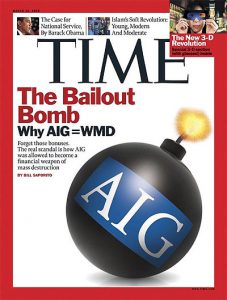 March 2, 2009: failing insurance giant AIG reports nearly $62 billion in losses during the fourth quarter of 2008, and the US government gave it $30 billion more in aid in a new bailout.
March 2, 2009: failing insurance giant AIG reports nearly $62 billion in losses during the fourth quarter of 2008, and the US government gave it $30 billion more in aid in a new bailout.
March 2 Peace Love Art Activism
FREE SPEECH
Westboro Baptist Church
Snyder v. Phelps
March 2, 2011: Snyder v. Phelps. On March 3, 2006, U.S. Marine Lance Corporal Matthew A. Snyder was killed in a non-combat-related vehicle accident in Iraq. On March 10, 2006 Westboro Baptist Church (WBC) picketed Snyder’s funeral in Westminister, Maryland, as it had done at thousands of other funerals throughout the U.S. in protest of what they considered America’s increasing tolerance of homosexuality. Picketers displayed placards such as “America is doomed”, “You’re going to hell”, “God hates you”, “Fag troops”, “Semper fi fags” and “Thank God for dead soldiers”.[3] Members of the Patriot Guard Riders, a group of motorcyclists who separate WBC protesters from those who attend military funerals, were present in support of the Snyder family.[4] WBC published statements on its website that denounced Albert Snyder and his ex-wife for raising their son Catholic, stating they “taught Matthew to defy his creator”, “raised him for the devil”, and “taught him that God was a liar”.
Albert Snyder, Matthew Snyder’s father, sued Fred Phelps, Westboro Baptist Church and two of Phelps’s daughters, Rebekah Phelps-Davis and Shirley Phelps-Roper, for defamation, intrusion upon seclusion, publicity given to private life, intentional infliction of emotional distress and civil conspiracy.
In an 8–1 decision (with the judges ruling the same way as they did in United States v. Stevens in 2010), the Supreme Court ruled in favor of Phelps, upholding the Fourth Circuit’s decision. Chief Justice John Roberts (as in the Stevens case) wrote the majority opinion stating “What Westboro said, in the whole context of how and where it chose to say it, is entitled to ‘special protection’ under the First Amendment and that protection cannot be overcome by a jury finding that the picketing was outrageous.” (Oyez article)
Middlebury College
March 2, 2017: hundreds of students at Middlebury College in Vermont shouted down Charles Murray, disrupting a program and confronting the speaker in an encounter that turned violent and left a faculty member injured.
Laurie L. Patton, the president of the college, issued an apology to all who attended the event and to Murray whose book “The Bell Curve,” published in 1994, linked lower socio-economic status with race and intelligence. (Inside Higher Ed article) (FS & Middlebury, see May 23)
March 2 Peace Love Art Activism
DEATH PENALTY
March 2, 2015: citing concerns about the drug to be used in a lethal injection, corrections officials in Georgia postponed the execution of the state’s only female death row inmate for the second time in a week.
The execution drug was sent to an independent lab to check its potency and the test came back at an acceptable level, but during subsequent checks it appeared cloudy, Georgia Department of Corrections spokeswoman Gwendolyn Hogan said. Corrections officials called the pharmacist and decided to postpone Kelly Renee Gissendaner’s execution “out of an abundance of caution,” she said. No new date was given. (see Mar 19)
March 2 Peace Love Art Activism
Stop and Frisk Policy
March 2, 2015: New York City cops were given new step-by-step instructions on how to conduct stop and frisks, as well as when it should be applied. The new guidelines were sparked by federal Judge Shira Scheindlin’s August 2013 ruling that the NYPD’s stop-and-frisk tactics violated the rights of minorities.
The updated rules hammer home the point that cops can’t stop-and-frisk people for merely making “furtive movements,” such as reaching for their waistband or acting nervous, or for being in a high-crime area — reasons that were allowed in the past.
Cops were also barred from stopping people because of race or if a person “matches a generalized description of a crime suspect, such as an 18- to 25-year-old black male.” Stop-and-frisks must be based on “more than a mere suspicion. (see Mar 19)
March 2 Peace Love Art Activism
Space
Crew Dragon
March 2, 2019: the first American spacecraft [and the first commercially developed crew capsule] capable of carrying astronauts since the retirement of the space shuttles launched from from NASA’s Kennedy Space Flight Center in Florida
There were no people on the demonstration flight, a SpaceX vehicle called Crew Dragon.
Five days later, after a successful docking and undocking from the International Space Station, the vehicle splash downed safely in the Atlantic Ocean off the northeast coast of Florida. [NYT article] (see Oct 18)
Blue Ghost
March 2, 2025: the Blue Ghost lander, a robotic spacecraft from Firefly Aerospace of Cedar Park, Texas gently set down on a lava plain on the moon’s near side.
Within about half an hour, the spacecraft sent back its first photograph of the moon’s surface.
It was a remarkable success for the company, achieving what many others have not.
Among the countries, companies and organizations that have attempted in the 21st century to set down softly on the moon, only China can claim complete success on the first try. Others, including those from India, Russia, an Israeli nonprofit and a Japanese company, all crashed and carved new craters on the lunar surface. [NYT article] (next Space, see )
March 2 Peace Love Art Activism
Trump Impeachment aftermath
March 2, 2020: the NYT reported that President Trump withdrew the nomination of Elaine McCusker to a top Defense Department post. Ms. McCusker had questioned the suspension of assistance to Ukraine. (next TI, see Apr 3 or see TIA for expanded chronology)
March 2 Peace Love Art Activism
Sexual Abuse of Children & BSA
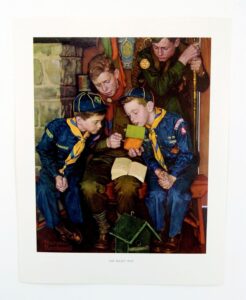
March 2, 2021: the debt-saddled Boy Scouts of America, faced with tens of thousands of sex-abuse claims, will sell its collection of Norman Rockwell art.
In a reorganization plan filed in federal bankruptcy court in Delaware, the Boy Scouts listed nearly 60 of pieces of art by Rockwell whose sale would help raise money for a settlement fund of at least $300 million for sexual abuse victims.
The names of the paintings include “The Right Way,” “On My Honor” and “I Will Do My Best.” The years that they were completed range from 1916 to a lithograph in 1976, two years before Rockwell’s death in 1978.
The association between the Boy Scouts of America and Norman Rockwell spanned more than six decades, yielding dozens of commissioned coming-of-age portraits that evoke virtue, bravery, and Americana. [CBS News article] [NYT article] (next SAC & BSA, see July 1)
March 2 Peace Love Art Activism
March 2 Peace Love Art Activism, March 2 Peace Love Art Activism, March 2 Peace Love Art Activism, March 2 Peace Love Art Activism, March 2 Peace Love Art Activism, March 2 Peace Love Art Activism, March 2 Peace Love Art Activism, March 2 Peace Love Art Activism, March 2 Peace Love Art Activism,

